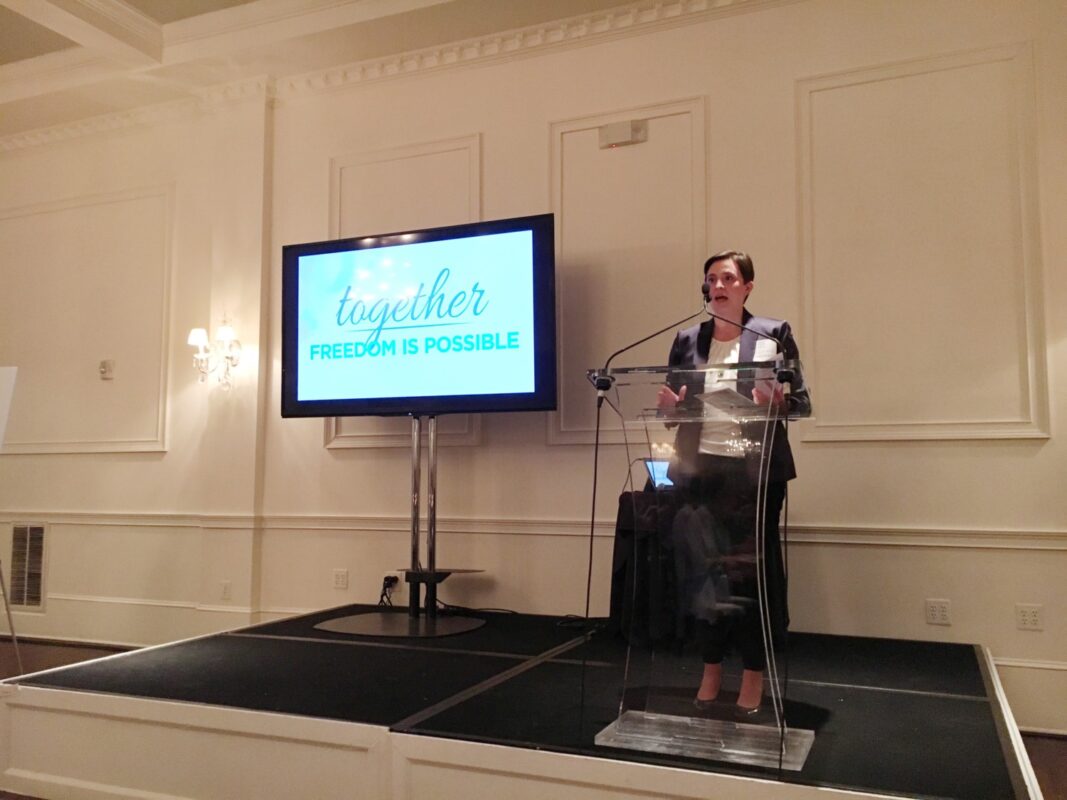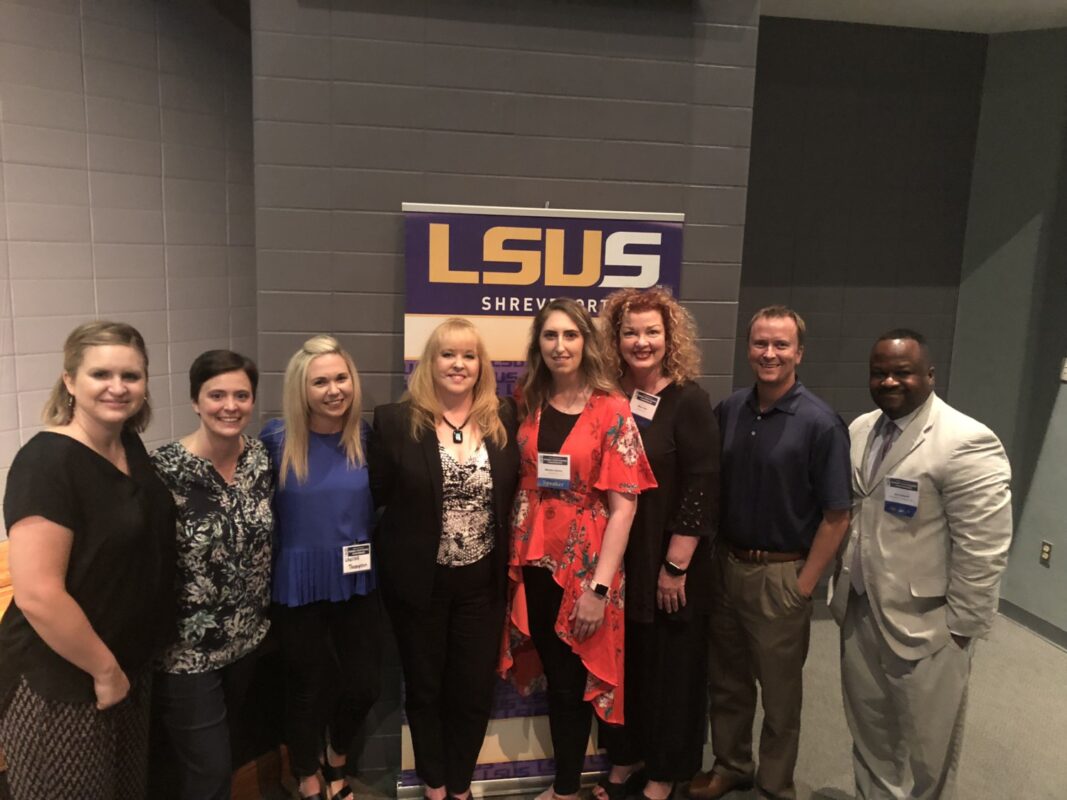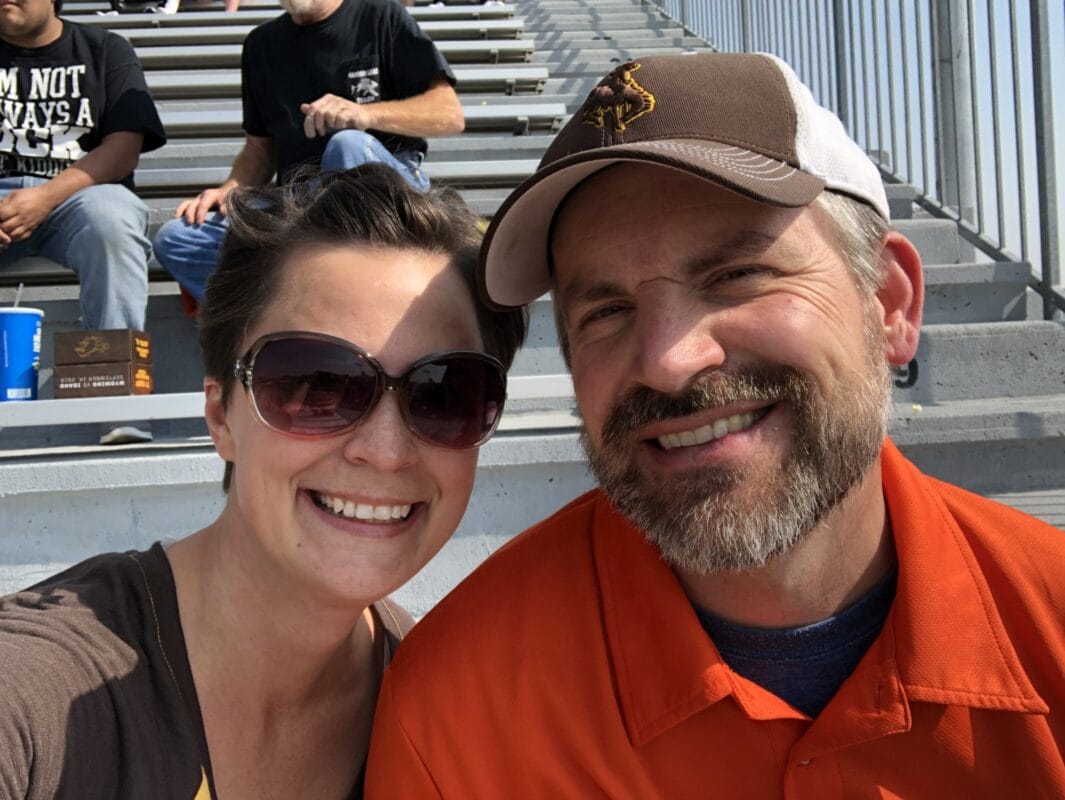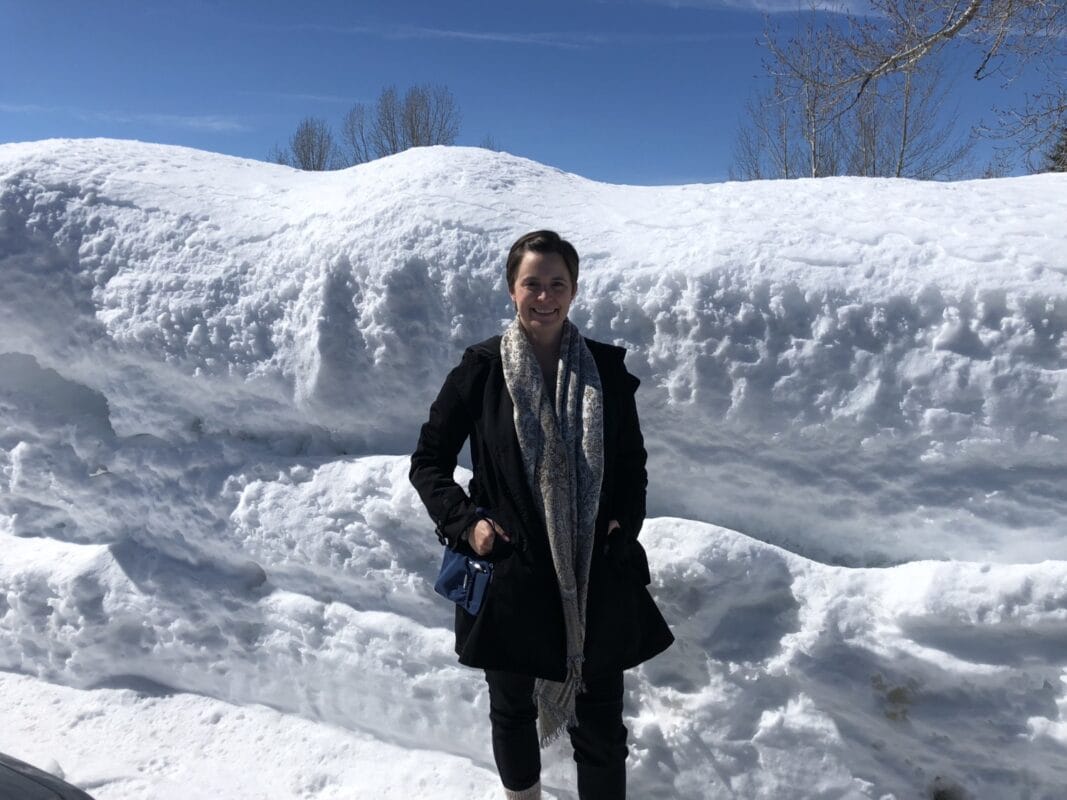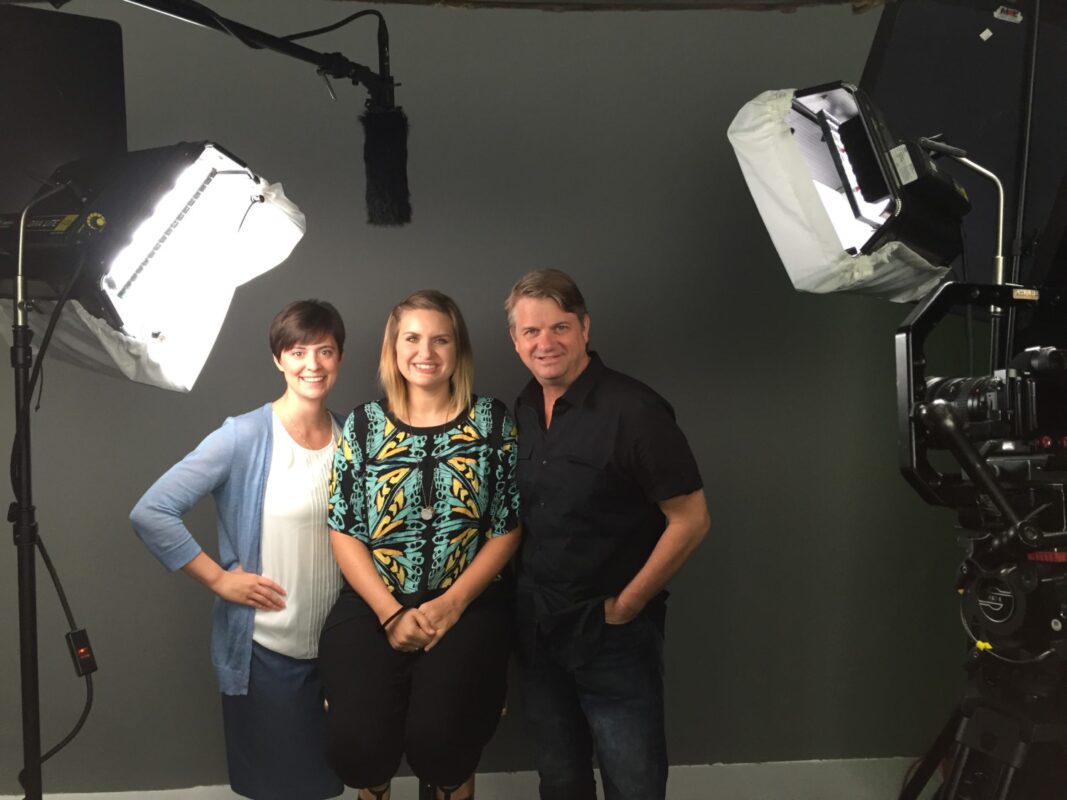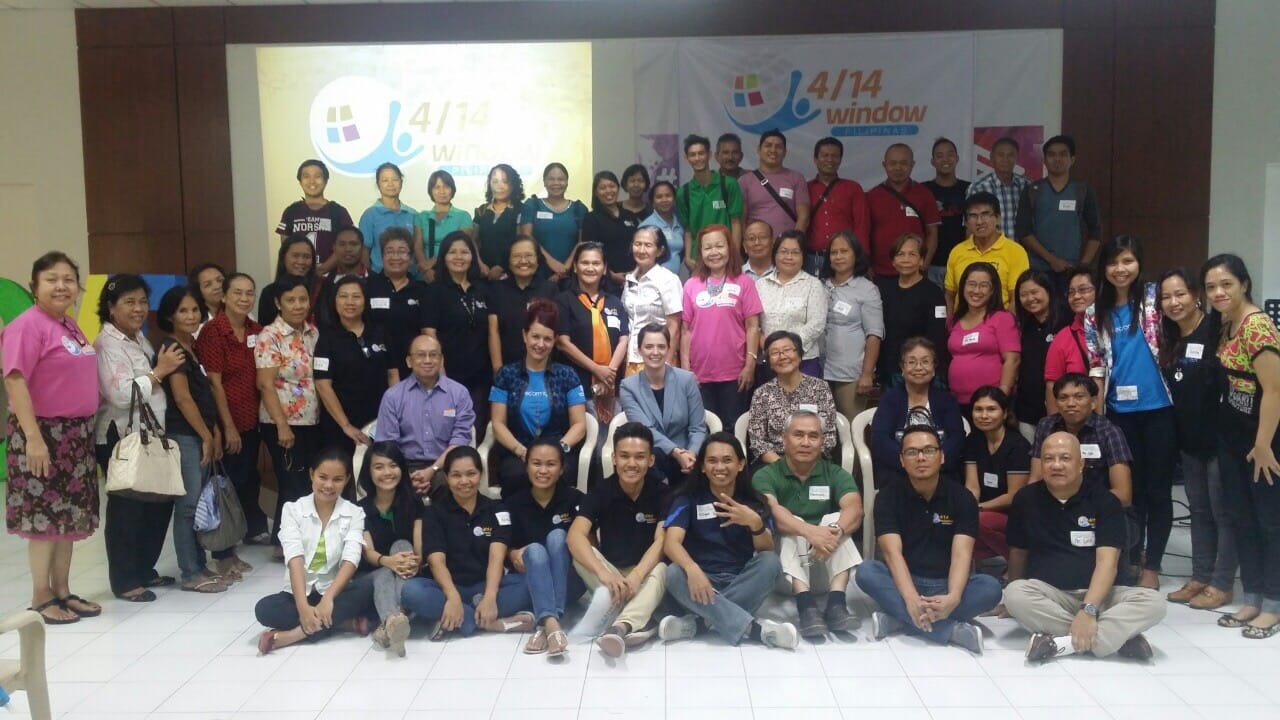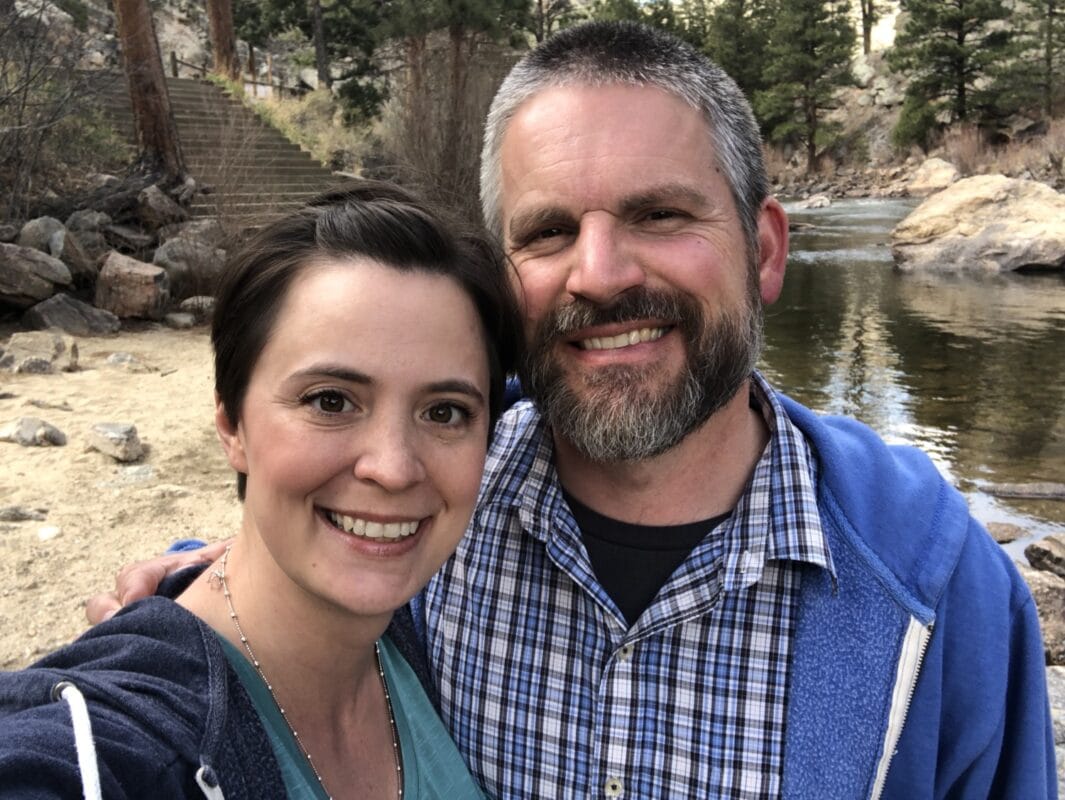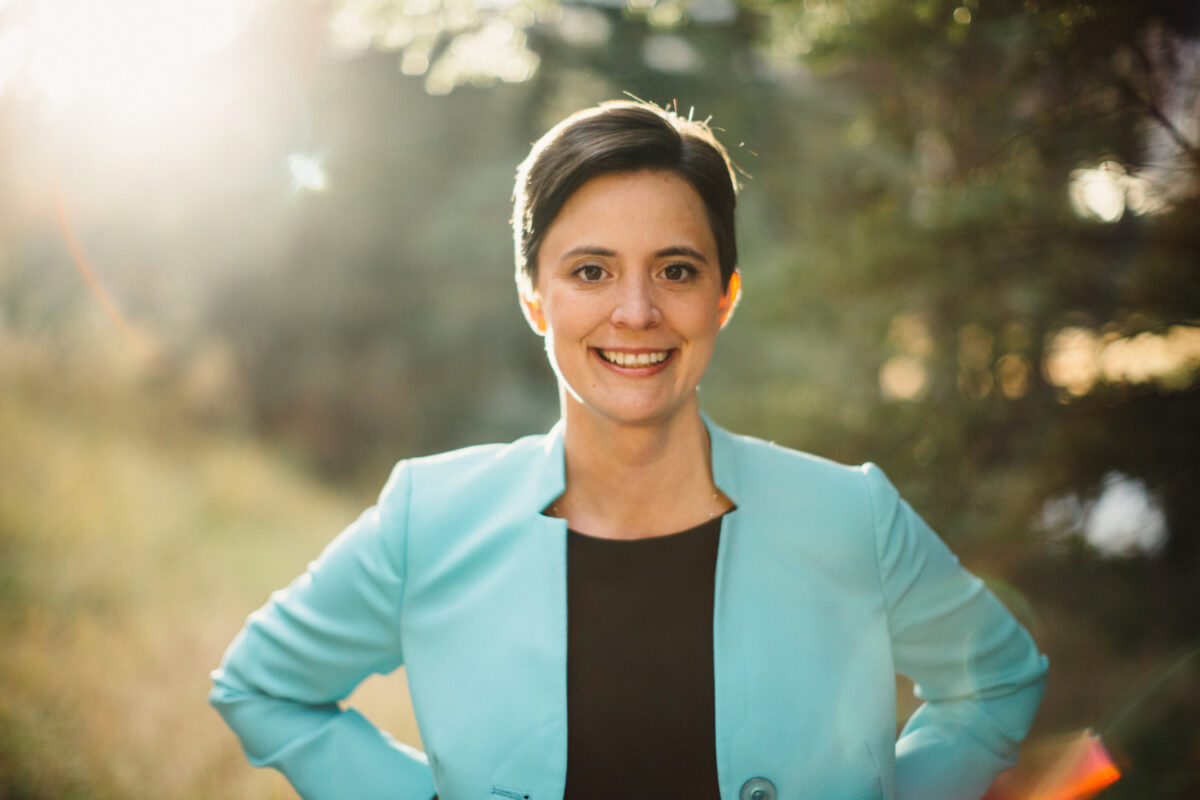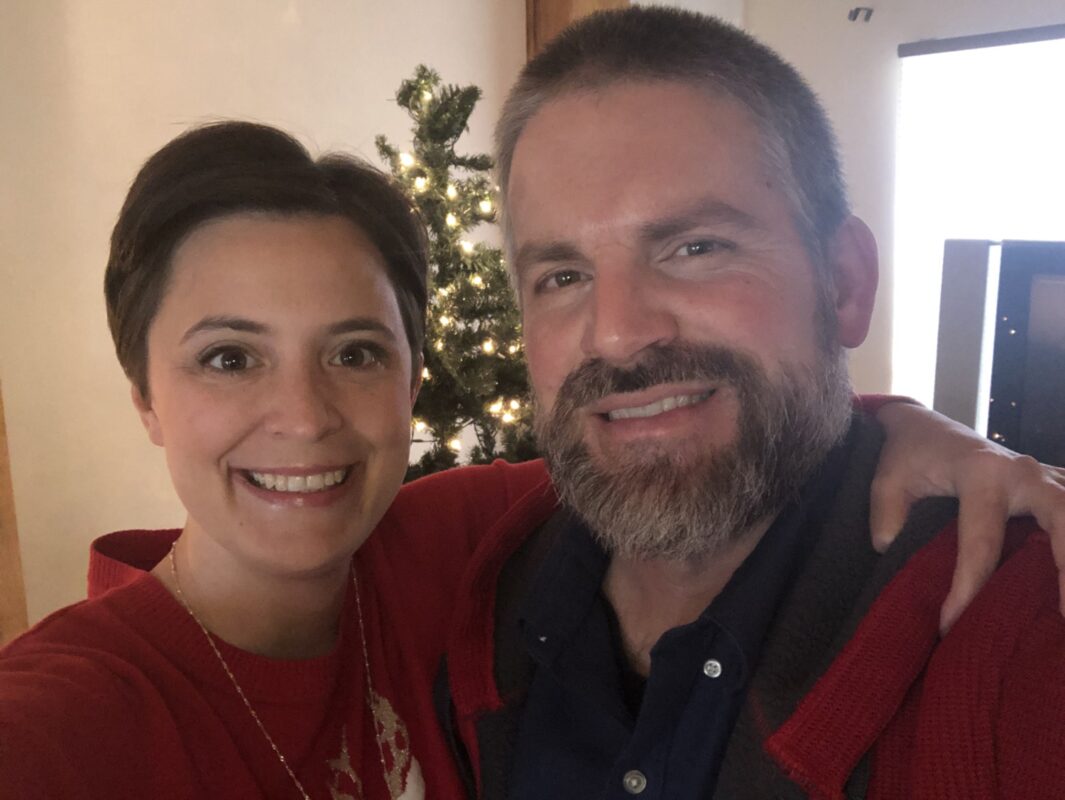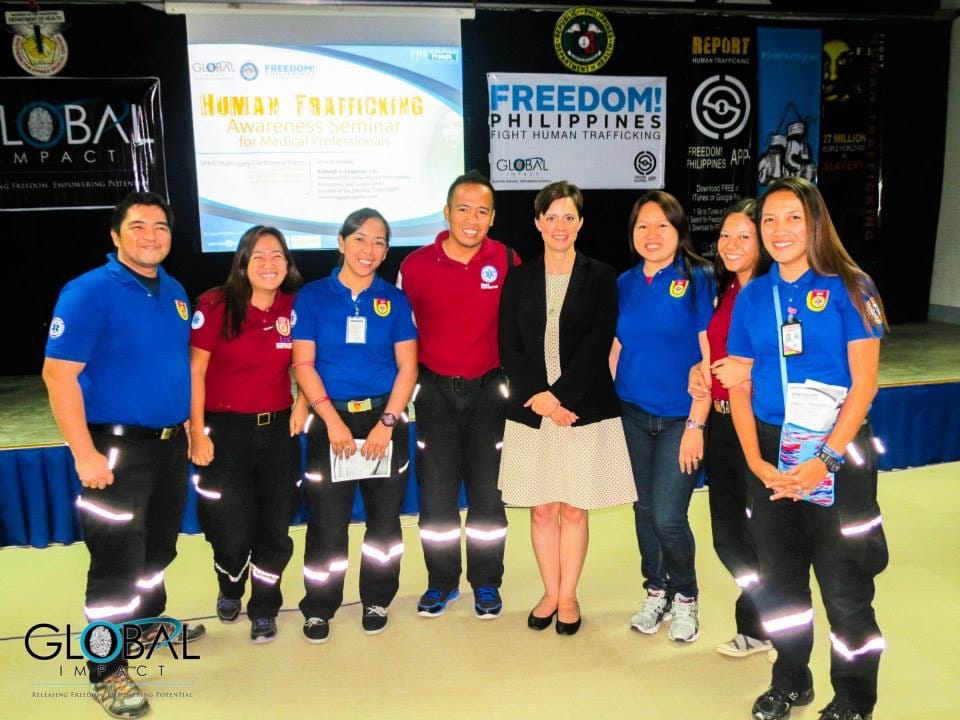Meet Ashleigh S. Chapman, human trafficking expert and founder of Justice U™, an online learning platform that quickly delivers knowledge from experts in the anti-trafficking movement to massive audiences who need it. She is the Founder/CEO of Altus Solutions, a Wyoming corporation dedicated to strengthening community response for vulnerable populations everywhere.
Who is Ashleigh S. Chapman?
I am a believer and a solution-builder. I believe our world can and must do better to address things that should not exist, such as human trafficking and the exploitation of the vulnerable. I believe that each of us is uniquely positioned to make an impact in the lives of others, particularly those in need, and that God’s purpose for us on this planet is to do exactly that. All we are and all we have is ours to leverage to make a difference for others. I believe that miracles can happen when we engage together.
“If we can identify and wrap around vulnerable individuals or populations in our communities, trafficking can be entirely prevented”
How were you as a kid?
Focused. When I was 11, my parents took in three young children who had experienced nearly every form of abuse and neglect. During their time with us, I became increasingly concerned with the brokenness of the systems that should have protected them from harm, and which made it difficult to keep them safe even after they were removed from the situation. After a miraculous series of events that led to their being adopted all together, I believed that God had shown me what my purpose was on this planet––to reform systems of care in communities to stop abuse and exploitation. I began drawing up plans, and knew I’d need a law degree to get it done. This is the path I have focused on pursuing every day since.
You are a licensed attorney in the state of Virginia. You graduated Magna Cum Laude with your Juris Doctorate from Regent University School of Law, receiving the school’s Most Outstanding Graduate award, and Summa Cum Laude with your B.S. from Tennessee Technological University. Why did you choose those courses of study?
Education is a tool––and a powerful one. And you get the tools you need to get the job done that you feel called to do. I pursued my undergraduate degree from the College of Education at TTU to better understand how to educate and equip others; and my law degree to gain the research, writing, and analytic skills (plus a comprehensive understanding of legal frameworks and government systems) that I needed to build solutions that could reform things on behalf of the oppressed and vulnerable. Combined, both degrees laid the foundation for all I do today.
You are a human trafficking expert and founder of Justice U™, an online learning platform that quickly delivers knowledge from experts in the anti-trafficking movement to massive audiences who need it, with the tools every modern learner needs today, tell us where this idea came from? Who is it addressed to?
For years, I was traveling nearly every week providing training across the globe on what human trafficking is, how it’s happening, how each community and every profession is positioned to engage it, and how best to work together for maximum impact. And every time, we were starting at ground zero. Also, every time, those attending the trainings realized they had recently come across human trafficking and had not known it because they did not know understand the indicators. So, one flight home, after training three cities in one day, I was wrestling with the reality that we are never going to turn the tide if we cannot find some way to educate, en masse and quickly, everyone in a position to help end and prevent it. And that’s a lot of people––law enforcement, healthcare providers, educators, businesses, community groups, nonprofits, social workers, and so many more. So, the question was, what do you build that can reach each individual with the specific knowledge they need, and yet provide knowledge to everyone who needs it? The solution we founded was an online learning platform that provides accessible and stackable knowledge for every relevant profession––Justice U™. So far, we have over 3,000 learners in 47 states and 8 countries. Our aim in the next three years is to equip 1M learners––from the concerned citizen to the professional in the field. We believe by doing so, many lives will be saved.
“Maintaining a stance of always being open to learning new things, incorporating new inputs, and welcoming new perspectives is the key to anything being (and continuing to be) successful”
You are the Founder/CEO of Altus Solutions, a Wyoming corporation dedicated to strengthening community response for vulnerable populations everywhere, can you give us more details about your company?
Altus is a business for good that exists to power solutions that protect the vulnerable. Some solutions you build can thrive in a nonprofit skin. I’ve directed nonprofits now for 20 years, and great things can be accomplished. However, solutions that are meant to reach every individual, every community, and, eventually, every country that needs them must be powered in a different way. So, we built Altus in order to scale solutions in partnership with impact investors, starting with Justice U™ (our online learning platform for justice advocates) and Engage Together® (our technical training and assistance program for communities). We’re excited about this new endeavor, and the impact and sustainability it will generate, as the profits of the company will help us scale even more solutions and support the great work of others.
You served as the President/CEO of the Alliance for Freedom, Restoration, and Justice, (AFRJ), the co-founder and Director of the Center for Global Justice at Regent University School of Law in Virginia, the Director of non-profit serving thousands of at-risk youths in Tennessee, a children’s pastor, and a Court Appointed Special Advocate for children in foster care, what does it drive you?
What drives me is the knowledge that there are so very many people who are hurting everywhere without the ability to change their circumstances unless someone is there to take notice and lend a hand. Sometimes, a simple act of kindness or generosity can make a world of difference. However, sometimes it will take more to help someone in need. In the case of human trafficking, millions of someone’s. I’m driven by the belief that every soul on this planet deserves to be free from oppression and exploitation, and that it’s everyone’s responsibility (and opportunity) to do all that we can to make it so.
“There are no barriers––just next steps. It’s a constant mantra of mine. Every time you build something, or work to grow something, there will be problems and challenges you just didn’t see coming”
What are the causes of human trafficking? How can we avoid it? Especially as sex traffickers are targeting through social media.
Human trafficking is most often the result of compounding vulnerabilities in a person’s life. While there is no one face of a human trafficking victim, certain populations are more vulnerable, including: runaway and homeless youth; children and youth in foster care; individuals fleeing violence, poverty, or natural disasters; and those who have suffered other types of abuse or exploitation in their lifetimes. Which means that, if we can identify and wrap around vulnerable individuals or populations in our communities, trafficking can be entirely prevented.
When that doesn’t happen, traffickers can easily prey on the vulnerable for their own profit, often using force, fraud, or coercion. While traffickers commoditize an individual for labor, sexual exploitation, or organs, buyers drive demand.
When it comes to sex trafficking, this occurs when an individual uses force, fraud, or coercion to make another person engage in commercial sex acts. A commercial sex act is an act for which anything of value is given or received, not just money. It could be in exchange for food, shelter, drugs, etc. Under U.S. law, any minor under the age of 18 who is induced into commercial sex is considered by law a victim of sex trafficking (regardless of whether force, fraud, or coercion is present). This is important to understand, especially in the context of how traffickers target youth and young adults through social media today.
Traffickers are online and are looking for individuals who show signs of vulnerability, such as posting about troubles at home, showing signs of insecurity and low confidence, or looking to fit in and seek affirmation. Once a trafficker determines that an individual might be vulnerable and therefore willing to connect with a new person online, they reach out and begin building a relationship, often through lots of private messaging, asking questions about their day/life/troubles, and appearing to listen and affirm. And then asking about where they live, who their friends and family members are, asking them for photos or videos, and eventually asking them to meet.
Traffickers will engage with someone online for months, building a relationship and trust with their intended victim. This is happening through all forms of social media and online forums, including gaming.
The best way to prevent or identify this form of recruitment by traffickers is to:
- Get educated about all the ways it is happening so you can employ the right safety measures.
- Empower the youth in your life to be their own best advocate. We’ve collated a number of resources to help in our Online Safety Kit
For information about all forms of human trafficking (labor, sexual exploitation, and organs), why it happens, who is most vulnerable in your community, and how to see it and report it, I encourage everyone to take our free one-hour Human Trafficking Awareness course on Justice U at https://learnwithjusticeu.com/courses.
“I focus on stewarding each of the people and things that make up my life with excellence. So, the pressure is not to have it all and do it all, but to steward well what I have”.
Do you have any philosophy that guides your career decisions?
For me, it’s all about calling. What am I called to do? Who am I called to help? How am I called to do it? Every career decision I’ve made is built on that foundation. And if that concept is a foreign one, I’d just encourage you to think about what you are burdened by. What has God illuminated in your path? What need is He asking you to pay attention to or even solve for? Once you land on that, you’ll find that every skillset, every experience, every bit of knowledge, and all your passions and interests will come to life in ways that will change lives, including yours.
What´s the recipe for your success?
Well, I’m still learning! And I think that’s part of it. Maintaining a stance of always being open to learning new things, incorporating new inputs, and welcoming new perspectives is the key to anything being (and continuing to be) successful. Some rules I live by are:
- Try to stay focused on solutions, not problems.
- Endeavor to do all things with excellence, not perfection.
- Build a team that is as equally committed to the cause as they are to helping each other accomplish it.
What does a normal workday look like for you?
In my job, I’m not sure there is such a thing as a “normal” workday! But, when I’m not on the road helping communities or partners in the field, it typically goes down like this…First, I make an inordinate amount of coffee, then sort through all the emails that have poured in since I called it quits the night before. Next, I connect individually or in group calls with our team members to provide the support or inputs they need that day. This is always an exercise in mental gymnastics, as our global and national teams are daily working on a wide range of projects, including new technology solutions and business development opportunities, new online courses and community resources, new communications and marketing plans, finance and general operations, events and trainings, research and outreach, impact analytics and partner support––plus keeping initiatives thriving in both the nonprofit and business for good. During those efforts, I usually take quite a few calls with justice advocates in the field who are knocking on our door for help, which on any given day can range from supporting an international legislative effort to finding resources for a survivor in the Midwest. And once all that activity begins to die down, I turn to my “homework” list, which is a task list that I make each quarter to forecast everything I need to get done in the next 90-day sprint to support our existing projects and lay the foundation for future ones. It’s a full day.
“Ask yourself what gaps exist that you might feel called to fill, and what are all the ways you might go about it? Learn all you can right now”
What do you love most about your job? What is the most difficult part?
I love helping to bring new things to life that improve the lives of others, helping communities understand how to work together for greater impact, and all the people I am blessed to work with to get it all accomplished. What makes my job difficult, of course, is that the need is growing so much faster than we have resources to meet it. (This present pandemic crisis is only increasing that reality in our nation and all around the world.) Plus, we’re fighting against the very worst of evils. Human trafficking is impacting millions of lives. Children are being horrifically exploited. Vulnerable individuals are being gravely harmed everywhere. And many times, that can feel quite overwhelming and very dark. So, I keep my focus on building the solutions that can light every dark crevice where oppression and exploitation exist, solutions that can mobilize a world of people to make a world of impact, and I pray for all those in need that we cannot see or reach yet.
What is one strategy that has helped you to grow your business?
“There are no barriers––just next steps.” It’s a constant mantra of mine. Every time you build something, or work to grow something, there will be problems and challenges you just didn’t see coming. Refuse to see it as a barrier that impedes your ability to get to the other side. You may just have to find a way around it. Climb over it, dig underneath it, go the long way round if you must––but don’t give up. Just take the next step. And the next one after that. It may happen by degrees, but you’ll get there. The process may illuminate some things you’ll need when you do.
What do you like to do in your spare time?
Given that I was spending all my days focused on solving for some very dark things in our world, I came to the point where I really needed some place beautiful, restorative, and life-giving to call home. So, a couple of years ago we moved to Wyoming! Which means that, in my spare time now, I love going with my husband to the mountains, canyons, parks, or lakes nearby and just sitting together taking it all in or enjoying a picnic or some cookies from our favorite bakery. And if it’s too cold (which is often the case in Wyoming), we love going to the movies together or out to eat with friends.
Many authors say women can and must strive to have everything – a shining career, a blossoming family life and a perfectly balanced lifestyle all at once, others point out that– then women are placing unrealistic expectations on themselves if they believe they can have it all, you are married, so according to your experience, what do you think about these statements?
First, I think we need to redefine “having everything.” Such a phrase implies that we should go after and do everything with perfection. And I do not think that’s achievable or desirable. Instead, I focus on stewarding each of the people and things that make up my life with excellence. So, the pressure is not to have it all and do it all, but to steward well what I have. People first. Projects second. And I think that is entirely accomplishable.
“One of the core reasons so many problems exist in our world today is that we give [social issues] our leftovers. Our leftover attention, our leftover time, funds, talents, and energies. And the world, especially those who are hurting in it, deserve our absolute best”
What are your plans for the future?
Right now, I’m working to stand up our new business for good, knocking on a thousand impact investor doors, building out the team, and bringing all the products and services to life. Once we get that off the ground and running, I’ll be working to expand our solutions to address not just human trafficking head on, but also the vulnerabilities that drive it, including poverty, homelessness, hunger, foster care, and refugee care for starters.
There is still the glass ceiling for women in the world: Fewer opportunities, jobs underpaid just for that fact of being a woman, etc. Have you experimented with the glass ceiling? If yes, what are the biggest challenges you have faced and how have you overcome them?
I have personally run into many glass ceilings over the years, and perhaps most clearly in my present effort to fund our company. Less than 3% of investment and venture capital funding goes to women-owned startups. Which makes no sense at all, given the proven track record of female-owned companies outperforming their counterparts. And yet, somehow, this inequity remains true. It’s a glass ceiling I’m daily trying to break even now.
What tips, can you give to young girls who want to become a social entrepreneur like you?
A social entrepreneur builds things to make our world better. But first, you need to know what’s broken and what’s working. Ask yourself what gaps exist that you might feel called to fill, and what are all the ways you might go about it? Learn all you can right now. Research, and even better, serve with many different organizations who do many different things to get an idea of what is possible. (For example, helping to reform things like foster care is as varied as providing direct services in a single community to lobbying for legislation on a global scale). Once you land on what you feel compelled to solve for and how you feel you could do it given your aptitudes and interests, get equipped with the degree(s), knowledge, experience, and tools you’ll need for the road ahead. And do everything with excellence. One of the core reasons so many problems exist in our world today is that we give “social issues” our leftovers. Our leftover attention, our leftover time, funds, talents, and energies. And the world, especially those who are hurting in it, deserve our absolute best. It is not an easy road, but it’s worth it in every way.
I think in your position, many people may have the wrong idea of who you are, and what do you (professionally) with this idea in mind, what is being Ashleigh and what´s not?
What I’m not is a law enforcement officer who rescues individuals, or a lawyer in a courtroom prosecuting cases. Though I provide training and support to these amazing individuals, along with many others. What I do is steward a global alliance of justice advocates, daily bridging gaps in relationships, resources, solutions, and strategies. Alongside our teams, I build and power solutions, either through our nonprofit or business for good, that fill gaps in the movement in ways that will accelerate impact.
Who is the woman you admire the most and why?
That would have to be my mom, for so many reasons. With five young kids of her own, she and my dad took in children who were hurting in our community, which led me to discover my calling. While growing up, she worked as an accountant and a pastor’s wife, cooked amazing meals every night, made every birthday and holiday special, poured out encouragement to help us fly, served as a shoulder to cry on when we crash landed, and so much more. And she continues to do it even today!
Name: Ashleigh S. Chapman, JD
Sector: Human Rights Lawyer & Social Entrepreneur
Company: Altus Solutions, Inc. (business for good) & AFRJ® (global nonprofit)
Designation: Founder/CEO
Country: USA
Social media:
https://www.linkedin.com/in/ashleigh-s-chapman-jd-469a77199/
https://twitter.com/EngageTogether
https://www.instagram.com/engagetogether/
https://www.facebook.com/engagetogether/

